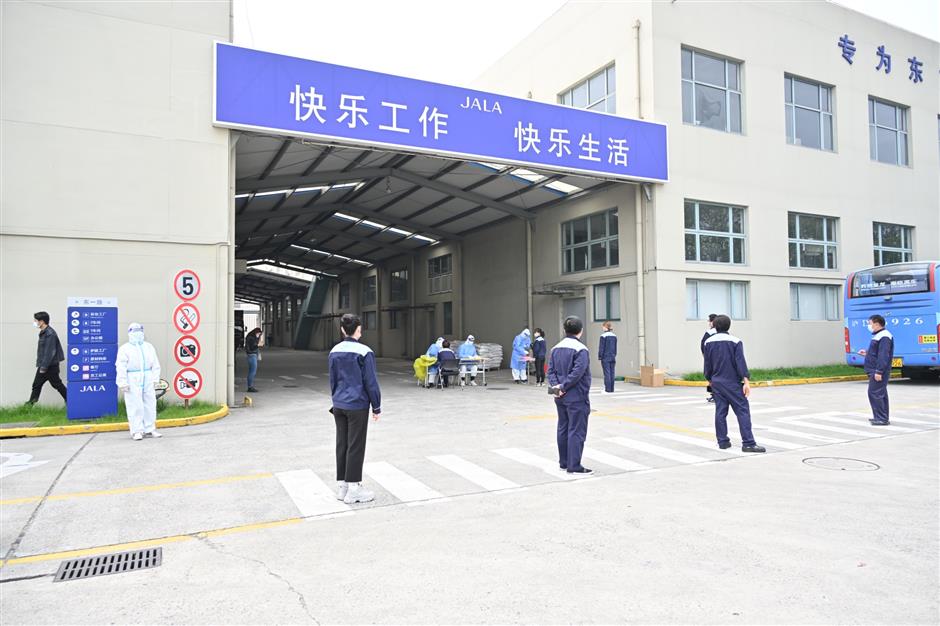Key companies reboot production in Shanghai as pandemic wanes

Tesla's gigafactory in Shanghai has restarted production.
Seventy percent of Shanghai's key companies have restarted production under COVID-19 prevention measures as the pandemic gradually eases.
Output capacity has kept increasing in the past week at over 460 major local companies, such as those in the automobile, integrated circuit and chemical industry sectors, according to Shanghai Vice Mayor Zhang Wei.
The first batch of vehicles have rolled off the assembly line at auto makers such as SAIC and Tesla after component suppliers also resumed production, Zhang told the city's daily COVID-19 press briefing on Friday.
"Since the city's COVID-19 pandemic has been trending downwards recently, more focus is being shifted to the restoration of work and production," Zhang said.
However, the high pandemic prevention standard is the top criteria for a company to resume operations, since the city's coronavirus prevention situation remains "complicated and struggling," he noted.
All the resumed companies, for instance, can conduct closed-door production. Some have established central quarantine sites and emergency plans to prevent the importing or leakage of any COVID-19 cases.
Some leading enterprises, such as SAIC and Tesla and semiconductor producers SMIC and Huahong, have rebooted production initially to spur the resumption of their industry chain's upstream and downstream supportive companies, he added.
Employees of the companies will have an electronic pass to allow them to exit their communities and return to work.
The COVID-19 resurgence in Shanghai since March 1 has had a great impact on the city's industrial and economic development, said Wu Jincheng, director of Shanghai Commission of Economy and Informatization.

Employees return to work at a cosmetics company in Fengxian District.
Shanghai's gross industrial output value has decreased by 7.5 percent month-on-month in March. The growth rate of industrial output fell to 4.8 percent in Q1 due to the impact of the pandemic, according to Wu.
Property rents for local small and micro-size enterprises and private businesses can be exempted for half a year without the need for any proof or a certificate attesting to the impact on trade of the pandemic, local authorities said.
Over 80,000 small and micro-size enterprises and private businesses have benefited from the policy, leading to a total rent-free amount of 10 billion yuan (US$1.54 billion), said Bai Tinghui, director of Shanghai State-owned Assets Supervision and Administration Commission.
To help bring the economy back on track, the vice mayor said multiple measures have been launched to guarantee interprovincial logistics.
A unified cargo transport pass, for instance, was initiated on Monday to allow trucks to cross provincial boundaries immediately, as long as a negative PCR test report made within two days is presented.
An electronic certificate has also been issued for truck drivers at Shanghai Port. It integrates information about the vehicle, cargo and driver as well as PCR and antigen test reports.
Shanghai continues to play a key role as an international shipping center even during the toughest period of the pandemic, Zhang said.
Shanghai Port is still handling over 100,000 TEUs (Twenty-foot Equivalent Units) every day in April.
Some 78 percent of scheduled international flight arrivals have been welcomed at the city's airports. The Pudong International Airport has handled 2,309 cargo flights, or about 100 flights every day, during April, transporting over 80,000 tons of cargo, or 3,500 tons a day on average, Zhang said.

Employees line up to receive PCR testing at a local factory.

















